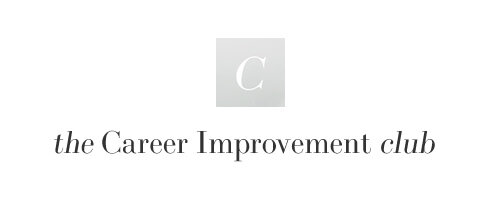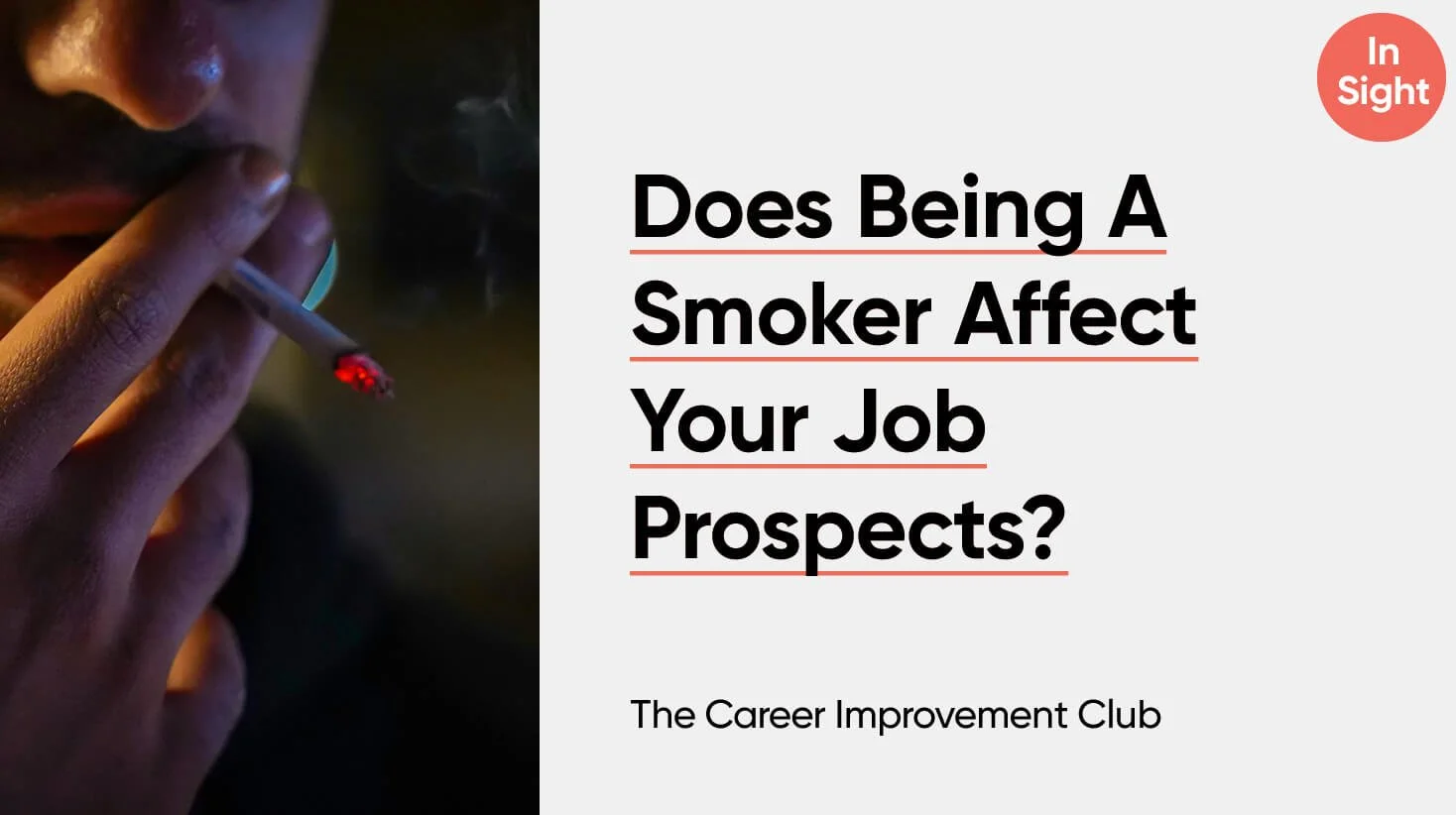It’s no secret that smoking can lead to detrimental health effects such as stroke, lung cancer, and heart disease. But aside from your health, smoking can also affect other aspects of your life, such as your career. Research on perceptions of cigarette smoking and weight in hypothetical hiring decisions revealed that smoking was viewed as undesirable, which could hamper the chances of landing a decent job. In fact, smokers were considered less attractive job candidates for both white- and blue-collared jobs.
This is largely because the state of your health can make or break many opportunities at work. In our previous article, how to explain a gap on a CV, we mentioned how an illness or injury can affect your work, even prompting you to take breaks that may be deemed questionable by some prospective employers. In the same vein, you may have a hard time getting hired due to prejudice surrounding smokers or people considered physically unqualified for a position. Below, we delve deeper into how smoking affects your job prospects.
THE IMPACT OF BEING A SMOKER
Smoking remains one of the most significant public health challenges globally, with profound implications for individuals and society as a whole. The obvious health risks associated with smoking range from respiratory diseases like chronic bronchitis and emphysema to cardiovascular conditions such as heart disease and stroke. Moreover, it increases the risk of developing various forms of cancer, including lung, throat, and mouth cancer.
The impact of these health concerns extends into various aspects of life, including productivity in the workplace. A 2021 study confirmed that heavy smokers were more likely to experience presenteeism — the phenomenon of being at work but not fully functioning due to health issues — than non-smokers. This results in a productivity loss that’s almost 1.7-fold higher than normal. Absenteeism rates among smokers were notable as well. According to a 2023 write-up by Pivot CEO David Utley, individuals who smoke exhibit a 31% higher rate of sick leave compared to their non-smoking counterparts.
This implies that smoking doesn’t only lead to personal health issues but also places a considerable burden on healthcare systems and employers. Utley found that smoking-related illnesses cause US businesses to lose nearly $185 billion (around £145 billion) annually. Considering all other factors, including absenteeism and increased healthcare expenses, the projected additional cost per tobacco-using employee surpasses $8,000 (around £6,700) compared to a non-smoking employee per year. This amount is expected to rise with inflation and widespread tobacco use among employees.
THE PERCEPTIONS OF SMOKING IN THE WORKPLACE
Given the known impacts of being a smoker on the employee, employer, and the economy, it’s unsurprising that attitudes towards smoking in the workplace have undergone significant shifts in recent years. This has resulted in various changes within the professional setting, from recruitment practices to workplace policies.
For starters, the social stigma around smoking means that employers may take smoking status into account when evaluating the work attitude and lifestyle habits of potential employees. In fact, a study on the impact of applicant smoking habits in job interviews confirmed that cigarette smokers were immediately deemed to be less qualified than their non-smoker counterparts during job interviews. This shows that some employers may view smoking as a personal choice that does not impact job performance, but others may prioritize candidates who demonstrate a commitment to maintaining a healthy lifestyle.
Some employers may also choose to not employ smokers to reduce workplace tensions and discrepancies in privileges, especially with smokers requiring regular smoke breaks. A 2023 survey by the nicotine pouch company Haypp UK confirmed that 52% of smokers and vapers take frequent smoke breaks during work hours, with some taking up to 20 minutes per break. Cumulatively, this results in approximately 39 hours of smoking breaks per year. Importantly, employees do not have an automatic entitlement to these breaks as part of their company benefits, leading to potential resentment among colleagues who perceive it as unfair for smokers to enjoy these privileges. This could breed a toxic work environment characterized by resentment, animosity, and diminished collaboration.
Lastly, in order to employ smokers, employers would have to navigate various legalities surrounding smoking in hiring practices. While it is generally illegal to discriminate against job candidates based on their health status, including their smoking status, employers may still take smoking into account when evaluating candidates' overall suitability for a position.
Ultimately, it is generally illegal to discriminate against job candidates based on their health status, including their smoking status. However, it’s an understandable fact that many employers tread carefully to evaluate a candidate’s overall work ethic and suitability for a position. With the many consequences of being a smoker, it’s natural that a candidate's smoking status will play a significant role in this evaluation. Therefore, smoking cessation remains one of the top ways to boost hiring chances.
If you’re a job seeker who’s considering quitting smoking to increase your job prospects, here are some tips for embarking on a smoking cessation journey…
TIPS FOR QUITTING
Before you quit smoking, be sure to have a solid reason why. Having a reason to quit something you’re used to doing regularly can motivate you because you have a specific goal to achieve. In this case, your reason for quitting is to boost your chances of getting a job. Another possible reason is that you want to live a healthier lifestyle to avoid smoking-related diseases when you grow older. Your reason to quit can be anything; just be sure to hold onto it so it’s easier to fend off cravings to smoke.
You can also try other alternatives like nicotine pouches that can help you gradually quit smoking. These pouches are placed between the cheek and gum, and you can choose from various options, like the wintergreen pouches from ZYN here. Unlike cigarettes, ZYN wintergreen pouches do not cause you to smell like smoke, which makes it easier to build a good impression during interviews. ZYN pouches also come in varying nicotine strengths, including 6mg, which can help you gradually reduce cigarette cravings until you’re able to quit entirely. If you’re looking for another option, you can also read more information on nicotine patches like Nicoderm CQ, which you can put on your skin to help aid your quitting journey. These patches come in 7mg, 14mg, and 21mg doses of nicotine strength that you lower over time.
Have a clear reason to quit, such as improving job prospects or leading a healthier lifestyle.
Consider using nicotine pouches or patches as alternatives to gradually reduce cravings.
Manage withdrawal symptoms through distractions like cognitive behavioral therapy or meditation.
Seek support from experts who can help identify smoking triggers and provide coping strategies.
Recognise the benefits of quitting, including improved health and increased chances of landing your dream job.
Quitting can cause withdrawal symptoms such as intense cravings for cigarettes and irritability. To manage these, you need to find ways to distract yourself. One effective way is through cognitive behavioral therapy, which enables you to talk to an expert who can help you pinpoint smoking triggers and offer healthier coping activities like meditation to distract you from cravings to smoke. In some cases, you can also tailor your therapy to include both your quitting journey and career journey for more effective results.
Your chances of being hired can be affected by bad habits like smoking. Following these tips can not only help you get your dream job but also help you live a healthier lifestyle as you go through your career.
Key takeaways, consider the following…
SMOKING’S IMPACT ON JOB PROSPECTS: Smoking can negatively impact job prospects due to social stigma and concerns about health and productivity.
HEALTH IMPLICATIONS: Smoking is linked to various health issues, including respiratory diseases, cardiovascular conditions, and cancer, which can affect productivity and increase absenteeism.
ECONOMIC BURDEN: Smoking-related illnesses lead to significant costs for businesses, including productivity loss and increased healthcare expenses.
CHANGING ATTITUDES: Attitudes towards smoking in the workplace have shifted, with some employers considering smoking status when evaluating candidates' suitability for a position.
WORKPLACE DYNAMICS: Smoking can lead to tensions in the workplace, particularly regarding smoke breaks and perceived unfair privileges for smokers.
LEGAL CONSIDERATIONS: While it's generally illegal to discriminate based on health status, employers may still take smoking into account when assessing candidates.
QUITTING SMOKING: Quitting smoking can improve job prospects and overall health, and various strategies, such as finding motivation, using nicotine pouches or patches, and seeking support through therapy, can aid in the quitting process.
Further reading on job search advice can be found here:
Latest Revision: 29/04/2024




